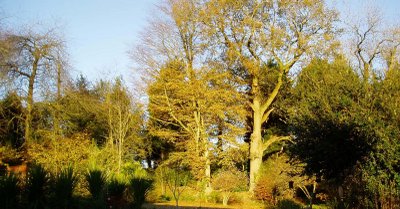Winter Walk
Spring's Messengers
 Where slanting banks are always with the sun
Where slanting banks are always with the sunThe daisy is in blossom even now;
And where warm patches by the hedges run
The cottager when coming home from plough
Brings home a cowslip root in flower to set.
Thus ere the Christmas goes the spring is met
Setting up little tents about the fields
In sheltered spots.--Primroses when they get
Behind the wood's old roots, where ivy shields
Their crimpled, curdled leaves, will shine and hide.
Cart ruts and horses' footings scarcely yield
A slur for boys, just crizzled and that's all.
Frost shoots his needles by the small dyke side,
And snow in scarce a feather's seen to fall.
Earth's Eternity
 Man, Earth's poor shadow! talks of Earth's decay:
Man, Earth's poor shadow! talks of Earth's decay:But hath it nothing of eternal kin?
No majesty that shall not pass away?
No soul of greatness springing up within?
Thought marks without hoar shadows of sublime,
Pictures of power, which if not doomed to win
Eternity, stand laughing at old Time
For ages: in the grand ancestral line
Of things eternal, mounting to divine,
I read Magnificence where ages pay
Worship like conquered foes to the Apennine,
Because they could not conquer. here sits Day
Too high for Night to come at--mountains shine,
Outpeering Time, too lofty for decay.
Clare's Diary
 December 25.--
December 25.--Christmas Day: gathered a handful of daisies in full bloom: saw a woodbine and dogrose in the woods putting out in full leaf, and a primrose root full of ripe flowers. What a day this used to be when I was a boy! How eager I used to be to attend the church to see it stuck with evergreens (emblems of eternity), and the cottage windows, and the picture ballads on the wall, all stuck with ivy, holly, box, and yew!
The Fens (excerpt)
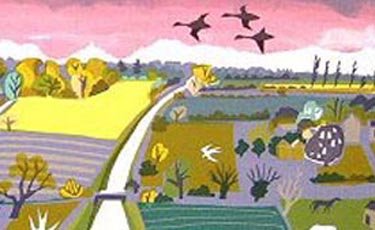
The geese in troops come droving up,
Nibble the weeds, and take a sup;
And, closely puzzled to agree,
Chatter like gossips over tea.
The gander with his scarlet nose
When strife's at height will interpose;
And, stretching neck to that and this,
With now a mutter, now a hiss,
A nibble at the feathers too,
A sort of "pray be quiet do,"
And turning as the matter mends,
He stills them into mutual friends;
Then in a sort of triumph sings
And throws the water oer his wings.
Braggart
He reels on warily along the street,
Slabbering at mouth and with a staggering stoop
Mutters an angry look at all he meets.
Bumptious and vain and proud he shoulders up
And would be something if he knew but how;
To any man on earth he will not stoop
But cracks of work, of horses and of plough.
Proud of the foolish talk, the ale he quaffs,
He never heeds the insult loud that laughs:
With rosy maid he tries to joke and play,--
Who shrugs and nettles deep his pomp and pride.
And calls him "drunken beast" and runs away--
King to himself and fool to all beside.
O Silly Love! O Cunning Love!
An old maid to trepan:
I cannot go about my work
For loving of a man.
I cannot bake, I cannot brew,
And, do the best I can,
I burn the bread and chill the mash,
Through loving of a man.
Shrove Tuesday last I tried, and tried,
To turn the cakes in pan,
And dropt the batter on the floor,
Through thinking of a man.
My mistress screamed, my master swore,
Boys cursed me in a troop;
The cat was all the friends I had,
Who helped to clean it up.
Last Christmas eve, from off the spit
I took the goose to table,
Or should have done, but teasing Love
Did make me quite unable;
And down slipt dish, and goose, and all
With din and clitter-clatter;
All but the dog fell foul on me;
He licked the broken platter.
Although I'm ten years past a score,
Too old to play the fool,
My mistress says I must give o'er
My service for a school.
Good faith! What must I do, and do,
To keep my service still;
I'll give the winds my thoughts to love,
Indeed and so I will.
And if the wind my love should lose,
Right foolish were the play,
For I should mourn what I had lost,
And love another day.
With crosses and with losses
Right double were the ill,
So I'll e'en bear with love and all,
Alack, and so I will.
The poet's Death
And plods from day to day:
The vulgar flourish like a weed,
The learned pass away.
We miss him on the summer path
The lonely summer day,
Where mowers cut the pleasant swath
And maidens make the hay.
The vulgar take but little heed;
The garden wants his care;
There lies the book he used to read,
There stands the empty chair.
The boat laid up, the voyage oer,
And passed the stormy wave,
The world is going as before,
The poet in his grave.
Love of Nature (excerpt)
I love thee, Nature, with a boundless love!
The calm of earth, the storm of roaring woods!
The winds breathe happiness where'er I rove!
There's life's own music in the swelling floods!
My heart is in the thunder-melting clouds,
The snow-cap't mountain, and the rolling sea!
And hear ye not the voice where darkness shrouds
The heavens? There lives happiness for me!
Autumn (Final)
And yet, sublime in grief, thy thoughts delight
To show me visions of most gorgeous dyes,
Haply forgetting now
They but prepare thy shroud;
Thy pencil dashing its excess of shades,
Improvident of wealth, till every bough
Burns with thy mellow touch
Disorderly divine.
Soon must I view thee as a pleasant dream
Droop faintly, and so reckon for thine end,
As sad the winds sink low
In dirges for their queen;
While in the moment of their weary pause,
To cheer thy bankrupt pomp, the willing lark
Starts from his shielding clod,
Snatching sweet scraps of song.
Thy life is waning now, and Silence tries
To mourn, but meets no sympathy in sounds,
As stooping low she bends,
Forming with leaves thy grave;
To sleep inglorious there mid tangled woods,
Till parch-lipped Summer pines in drought away;
Then from thine ivied trance
Awake to glories new.
Autumn (III)
Or crispy hills and hollows scant of sward,
Where step by step the patient, lonely boy,
Hath cut rude flights of stairs
To climb their steepy sides;
Now filtering winds thin winnow through the woods
With tremulous noise, that bids, at every breath,
Some sickly cankered leaf
Let go its hold and die.
And now the bickering storm, with sudden start,
In flirting fits of anger carps aloud,
Thee urging to thine end,
Sore wept by troubled skies.
Autumn (II)
By overshadowed ponds, in woody nooks,
With ramping sallows lined, and crowding sedge,
Which woo the winds to play,
And with them dance for joy;
And meadow pools, torn wide by lawless floods,
Where waterlilies spread their oily leaves,
On which, as wont, the fly
Oft battens in the sun;
Where leans the mossy willow half way o'er,
On which the shepherd crawls astride to throw
His angle, clear of weeds
That crown the water's brim;
Autumn (I)
Syren of sullen moods and fading hues,
Yet haply not incapable of joy,
Sweet Autumn! I thee hail
With welcome all unfeigned;
And oft as morning from her lattice peeps
To beckon up the sun, I seek with thee
To drink the dewy breath
Of fields left fragrant then,
In solitudes, where no frequented paths
But what thine own foot makes betray thine home,
Stealing obtrusive there
To meditate thy end;
Wild Bees (excerpt)
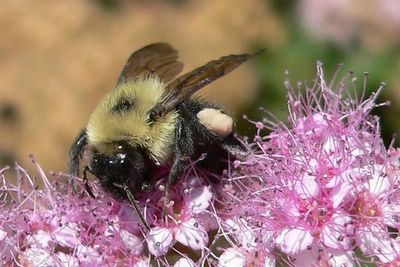
The black and yellow bumble first on wing
To buzz among the sallow's early flowers,
Hiding its nest in holes from fickle spring
Who stints his rambles with her frequent showers;
And one that may for wiser piper pass,
In livery dress half sables and half red,
Who laps a moss ball in the meadow grass
And hoards her stores when April showers have fled;

Ballad

[Swaddywell 'weeds' - July 2005]
A weedling wild, on lonely lea,
My evening rambles chanc'd to see;
And much the weedling tempted me
To crop its tender flower:
Expos'd to wind and heavy rain,
Its head bow'd lowly on the plain;
And silently it seem'd in pain
Of life's endanger'd hour.
"And wilt thou bid my bloom decay,
And crop my flower, and me betray ?
And cast my injur'd sweets away," -
Its silence seemly sigh'd -
"A moment's idol of thy mind?
And is a stranger so unkind,
To leave a shameful root behind,
Bereft of all its pride?"
And so it seemly did complain;
And beating fell the heavy rain;
And low it droop'd upon the plain,
To fate resign'd to fall:
My heart did melt at its decline,
And "Come," said I, "thou gem divine,
My fate shall stand the storm with thine;"
So took the root and all.

Mary Dove (excerpt)

[image: Carry Akroyd]
The hedges only seem to mourn,
The willow boughs to sigh,
Though sunshine o'er the meads sojourn,
To cheer me where I lie:
The blackbird in the hedgerow thorn
Sings loud his Summer lay;
He seems to sing, both eve and morn,
"She wanders here to-day."
The scene begins to look divine;
We'll by the river walk.
Her arm already seems in mine,
And fancy hears her talk.
A vision, this, of early love:
The meadow, river, rill,
Scenes where I walked with Mary Dove,
Are in my memory still.

My Isabel

Arise, my Isabel, arise!
The sun shoots forth his early ray,
The hue of love is in the skies,
The birds are singing, come away!
O come, my Isabella, come,
With inky tendrils hanging low;
Thy cheeks like roses just in bloom,
That in the healthy Summer glow.
That eye it turns the world away
From wanton sport and recklessness;
That eye beams with a cheerful ray,
And smiles propitiously to bless.
O come, my Isabella, dear!
O come, and fill these longing arms!
Come, let me see thy beauty here,
And bend in worship o'er thy charms.
O come, my Isabella, love!
My dearest Isabella, come!
Thy heart's affection, let me prove,
And kiss thy beauty in its bloom.
My Isabella, young and fair,
Thou darling of my home and heart,
Come, love, my bosom's truth to share,
And of its being form a part.

When Shall We Meet Again?
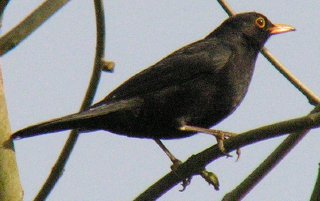
How many times Spring blossoms meek
Have faded on the land
Since last I kissed that pretty cheek,
Caressed that happy hand.
Eight time the green's been painted white
With daisies in the grass
Since I looked on thy eyes so bright,
And pressed my bonny lass.
The ground lark sung about the farms,
The blackbird in the wood,
When fast locked in each other's arms
By hedgerow thorn we stood.
It was a pleasant Sabbath day,
The sun shone bright and round,
His light through dark oaks passed, and lay
Like gold upon the ground.
How beautiful the blackbird sung,
And answered soft the thrush;
And sweet the pearl-like dew-drops hung
Upon the white thorn bush.
O happy day, eight years ago!
We parted without pain:
The blackbird sings, primroses blow;
When shall we meet again?

Graves of Infants

Infants' gravemounds are steps of angels, where
Earth's brightest gems of innocence repose.
God is their parent, so they need no tear;
He takes them to his bosom from earth's woes,
A bud their lifetime and a flower their close.
Their spirits are the Iris of the skies,
Needing no prayers; a sunset's happy close.
Gone are the bright rays of their soft blue eyes;
Flowers weep in dew-drops o'er them, and the gale gently sighs.
Their lives were nothing but a sunny shower,
Melting on flowers as tears melt from the eye.
Their deaths were dew-drops on heaven's amaranthine bower
Was tolled on flowers as Summer gales went by.
They bowed and trembled, yet they heaved no sigh,
And the sun smiled to show the end was well.
Infants have nought to weep for ere they die;
All prayers are needless, beads they need not tell,
White flowers their mourners are, Nature their passing bell.

From the pen of Ronnie Blythe
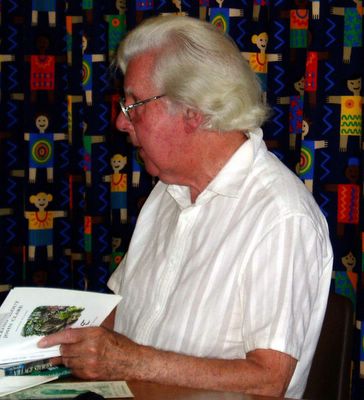
[Ronnie at the John Clare Society Festival - July 2006]
A scholar has sent me his take on a John Clare poem, "Graves of Infants". Simultaneously in the press, I read about the Pope's having to deal with limbo. Look up limbo. Oh, my goodness. "Those in limbo are excluded from supernatural beatitude, but according to St Thomas Aquinas enjoy full natural happiness. The existence of limbo is a matter of theological opinion on which the Church has never pronounced definitely either way."
But then we come to limbus infantium - unbaptised babies who, although born in original sin, are innocent of personal guilt. In fact, although many a child was too ill to make the font, it would have had the midwife's sign of the Cross on its forehead, and her speedy "In the name of the Father ..." the minute it emerged, infant mortality and her grubby hands being what they were.
"Limbo ... mumbo-jumbo ...", murmured a voice on the radio. I suppose that the Church does have to turn out its medieval attic now and then. Here comes John Clare, however, father of nine, survivor of twins, and sanest of poets where children, and what we now dub ecology, are concerned. Rural religion and economics have frequently shown their madness when we compare them with what he preached.
In "Graves of Infants", he enters the vast sadness of 19th-century child mortality. You raised some, you lost some, they said. Victorian literature is full of what most families experienced, the death-beds of boys and girls. Country churchyards are full of children - city ones, too, of course. Should a child die now, it shakes the entire parish. Whether by disease or accident, it is unnatural to us. But not long ago it was entirely natural; for nature itself was tragic, as Clare knew all too terribly.
In June 1844, from Northampton Asylum - his "Mad House" - came his reconciling conclusion to the common fate of many children. It was the only answer that he could make sense of. Brief life or long life, they were no more than aspects of nature.
God is their parent, they need no tear...
A bud their life-time, and a flower to close...
All prayers are needless - beads they need not tell;
White flowers their mourners are, nature their passing bell.
[Church Times - Friday, 20th October, 2006 (excerpt)]

The Shepherd's Tree
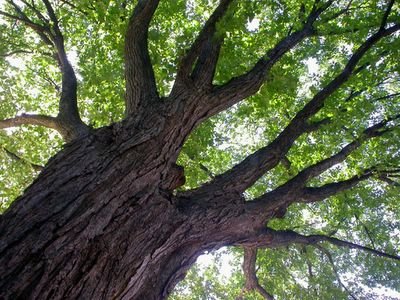
Huge elm, with rifted trunk all notched and scarred,
Like to a warrior's destiny! I love
To stretch me often on thy shadowed sward,
And hear the laugh of summer leaves above;
Or on thy buttressed roots to sit, and lean
In careless attitude, and there reflect
On times, and deeds, and darings that have been--
Old castaways, now swallowed in neglect;
While thou art towering in thy strength of heart,
Stirring the soul to vain imaginings,
In which life's sordid being hath no part.
The wind of that eternal ditty sings,
Humming of future things, that burn the mind
To leave some fragment of itself behind.

Remembrances (IV)

By Langley Bush I roam, but the bush hath left its hill,
On Cowper Green I stray, tis a desert strange and chill,
And the spreading Lea Close oak, ere decay had penned its will,
To the axe of the spoiler and self-interest fell a prey,
And Crossberry Way and old Round Oak's narrow lane
With its hollow trees like pulpits I shall never see again,
Enclosure like a Buonaparte let not a thing remain,
It levelled every bush and tree and levelled every hill
And hung the moles for traitors--though the brook is running still
It runs a sicker brook, cold and chill.
O had I known as then joy had left the paths of men,
I had watched her night and day, be sure, and never slept agen,
And when she turned to go, O I'd caught her mantle then,
And wooed her like a lover by my lonely side to stay;
Ay, knelt and worshipped on, as love in beauty's bower,
And clung upon her smiles as a bee upon a flower,
And gave her heart my posies, all cropt in a sunny hour,
As keepsakes and pledges all to never fade away;
But love never heeded to treasure up the may,
So it went the common road to decay.

Remembrances (III)
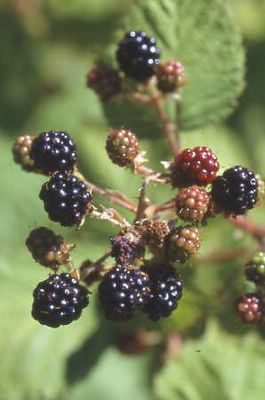
Here was commons for their hills, where they seek for freedom still,
Though every common's gone and though traps are set to kill
The little homeless miners--O it turns my bosom chill
When I think of old Sneap Green, Puddock's Nook and Hilly Snow,
Where bramble bushes grew and the daisy gemmed in dew
And the hills of silken grass like to cushions to the view,
Where we threw the pismire crumbs when we'd nothing else to do,
All levelled like a desert by the never weary plough,
All banished like the sun where that cloud is passing now
And settled here for ever on its brow.
O I never thought that joys would run away from boys,
Or that boys would change their minds and forsake such summer joys;
But alack I never dreamed that the world had other toys
To petrify first feelings like the fable into stone,
Till I found the pleasure past and a winter come at last,
Then the fields were sudden bare and the sky got overcast
And boyhood's pleasing haunt like a blossom in the blast
Was shrivelled to a withered weed and trampled down and done,
Till vanished was the morning spring and set the summer sun
And winter fought her battle strife and won.

Remembrances (II)
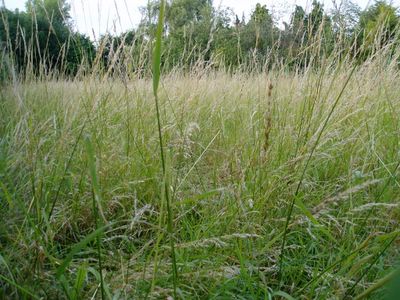
[Crossberry Way in 2004]
When jumping time away on old Crossberry Way,
And eating awes like sugarplums ere they had lost the may,
And skipping like a leveret before the peep of day
On the roly poly up and downs of pleasant Swordy Well,
When in Round Oak's narrow lane as the south got black again
We sought the hollow ash that was shelter from the rain,
With our pockets full of peas we had stolen from the grain;
How delicious was the dinner time on such a showery day!
O words are poor receipts for what time hath stole away,
The ancient pulpit trees and the play.
When for school oer Little Field with its brook and wooden brig,
Where I swaggered like a man though I was not half so big,
While I held my little plough though twas but a willow twig,
And drove my team along made of nothing but a name,
"Gee hep" and "hoit" and "woi"--O I never call to mind
These pleasant names of places but I leave a sigh behind,
While I see little mouldiwarps hang sweeing to the wind
On the only aged willow that in all the field remains,
And nature hides her face while they're sweeing in their chains
And in a silent murmuring complains.

Remembrances (I)
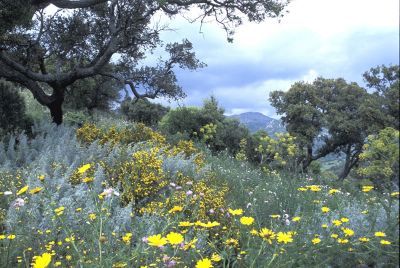
Summer's pleasures they are gone like to visions every one,
And the cloudy days of autumn and of winter cometh on.
I tried to call them back, but unbidden they are gone
Far away from heart and eye and forever far away.
Dear heart, and can it be that such raptures meet decay?
I thought them all eternal when by Langley Bush I lay,
I thought them joys eternal when I used to shout and play
On its bank at "clink and bandy," "chock" and "taw" and "ducking stone,"
Where silence sitteth now on the wild heath as her own
Like a ruin of the past all alone.
When I used to lie and sing by old Eastwell's boiling spring,
When I used to tie the willow boughs together for a swing,
And fish with crooked pins and thread and never catch a thing,
With heart just like a feather, now as heavy as a stone;
When beneath old Lea Close oak I the bottom branches broke
To make our harvest cart like so many working folk,
And then to cut a straw at the brook to have a soak.
O I never dreamed of parting or that trouble had a sting,
Or that pleasures like a flock of birds would ever take to wing,
Leaving nothing but a little naked spring.

The Gipsy's Camp

How oft on Sundays, when I'd time to tramp,
My rambles led me to a gipsy's camp,
Where the real effigy of midnight hags,
With tawny smoked flesh and tattered rags,
Uncouth-brimmed hat, and weather-beaten cloak,
Neath the wild shelter of a knotty oak,
Along the greensward uniformly pricks
Her pliant bending hazel's arching sticks:
While round-topt bush, or briar-entangled hedge,
Where flag-leaves spring beneath, or ramping sedge,
Keeps off the bothering bustle of the wind,
And give the best retreat she hopes to find.
(excerpt)

The Village Minstrel - XLVII
When welcome night shut out the toiling day,
Following he mark'd the simple-hearted swain;
Joying to listen, on his homeward way,
While rest's warm rapture rous'd the rustic's lay,
The thread-bare ballad from each quavering tongue,
As "Peggy Band," or the "Sweet month of May":
Oh how he joy'd to hear each "good old song,"
That on night's pausing ear did echo loud and long.
Peggy Band she is my jewel,
My heart lies in her breast,
Although we are at a distance,
I still love her the best.
Although we are at a distance,
And the seas between us roar,
I'll be constant to my Peggy,
And so adieu for evermore.
(Trad.)

The Frightened Ploughman
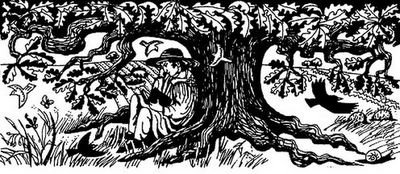
[Image - Carry Akroyd]
I went in the fields with the leisure I got,
The stranger might smile but I heeded him not,
The hovel was ready to screen from a shower,
And the book in my pocket was read in an hour.
The bird came for shelter, but soon flew away;
The horse came to look, and seemed happy to stay;
He stood up in quiet, and hung down his head,
And seemed to be hearing the poem I read.
The ploughman would turn from his plough in the day
And wonder what being had come in his way,
To lie on a molehill and read the day long
And laugh out aloud when he'd finished his song.
The pewit turned over and stooped oer my head
Where the raven croaked loud like the ploughman ill-bred,
But the lark high above charmed me all the day long,
So I sat down and joined in the chorus of song.
The foolhardy ploughman I well could endure,
His praise was worth nothing, his censure was poor,
Fame bade me go on and I toiled the day long
Till the fields where he lived should be known in my song.

Summer Images (excerpt)
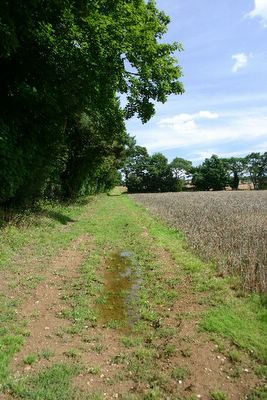
I love to walk the fields, they are to me
A legacy no evil can destroy;
They, like a spell, set every rapture free
That cheered me when a boy.
Play--pastime--all time's blotting pen concealed,
Comes like a new-born joy,
To greet me in the field.
For nature's objects ever harmonize
With emulous taste, that vulgar deed annoys;
It loves in quiet moods to sympathize,
And meet vibrating joys
Oer nature's pleasant things; nor will it deem
Pastime the muse employs
A vain obtrusive theme.

Word from Wormingford - Ronald Blythe
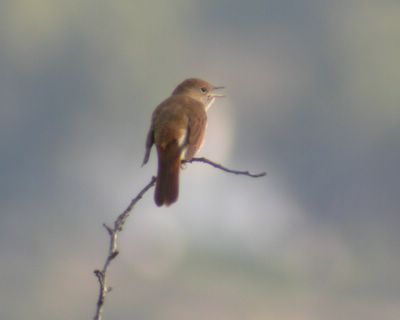
We sit by Roger's deathbed, Alison, Vicki, and I. It is late Sunday afternoon, with the heatwave fading; and Roger lies against a white mountain of pillows. The little window opens on to the mite of grass and the cool moat in whch Roger swam all the year round, writing the preface, as it were, for his strenuous masterpiece Waterlog.
Now he whispers, his familiar voice a kind of human susurration in tune with aspen leaves, and we listen hard to catch his words. He looks, if anything, rather astonished, as do we in our different ways.
When he drove from his ancient farmhouse to mine, he would bring a present: a fine cup, a fine grapefruit sapling he had grown from a pip, and once a wonderful new scythe from Stowmarket. Now and then, we were made to stand side by side at literature festivals and talk about the countryside; and he would laugh, because, he said, I used complete sentences, the kind you read.
And now his light flickers, every now and then flaring into his old self, every now and then on the verge of going out. The rough draft for the jacket of his last book slips on the coverlet. It is called Wildwood: A walk through trees.
I have brought John Clare's poems with me. I read the one that Ted Hughes read in Poets' Corner when we put up a memorial to him. It is called "The Nightingale's Nest", and it describes Clare being torn between his need to come close to the sitting bird and his longing not to scare it. How can he communicate his not being like other men or, rather, boys?
It is a long poem, and Roger's ears, I realise, are not at all dying at this moment. He is listening to Clare as keenly as we listened together to the nightingales at Tiger Hill. Both John Clare and John Keats - they knew of each other and shared the same publisher - believed that the nightingale "lived on song".
Clare was the greater naturalist, and knew all about those physical things that produced the music, the dense coverage below the trees in Royce Wood, the secret nest -
. . . no other bird
Uses such loose materials or
weaves
Their dwellings in such spots
- dead oaken leaves
Are placed without and velvet
moss within,
And little scraps of grass -
and scant and spare
Of what seems scarce
materials, down and hair ...
Walnut Tree Farm, the home that Roger re-created from abandoned materials, has always reminded me of how men, long ago, and maybe even today, had a nest in mind when they looked around for a house. It hides away in foliage that brings secrecy to a vast open common. Going to see him there has often made me think of centuries of spun-out villagers, as anxious to discover what is going on in nests not their own as Clare was when creeping towards his revered nightingale, terrified that she would hear him and her song would be cut short by "choaking fear".
Only a year or two ago, I had heard Roger Deakin recording the creaks and bumps of Walnut Tree Farm on the radio, and the rivery sounds of the Waverney, perfect scraps of nature's conversation. Could we, perhaps, hear John Donne's prayer? The one about the house in which there will be "no noise nor silence, but one equal music . . . no ends nor beginnings, but one equal eternity"? And thus we kiss and leave.
(Church Times - 1st September 2006)




